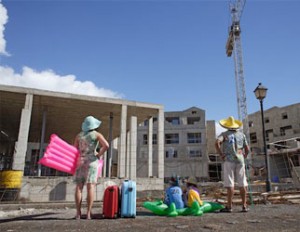Bad trip
Vacations are often memorable—but sometimes for all the wrong reasons. Plan for the worst to make the best of your leisure travel.
Advertisement
Vacations are often memorable—but sometimes for all the wrong reasons. Plan for the worst to make the best of your leisure travel.
 No, I haven’t been robbed, mugged, kidnapped or carjacked while travelling in foreign lands. I have, however, endured my share of mishaps, and even a few catastrophes. Like the time I washed my passport in Tuscany, necessitating a last-minute, white-knuckle dash to the Canadian embassy in Rome. Or the time my bank card was eaten by an ATM in Switzerland and my credit card was simultaneously frozen because the vigilantes at Visa thought they detected “unusual activity” on my account. Or the time I went swimming with the rental car keys in my bathing suit pocket, leaving me stranded in remotest Cape Breton with no money, clothes, transportation, lodging, phone or dignity.
Yes, bad stuff can happen. But a lot of it can be prevented, or at least minimized, with a little knowledge, foresight and planning. The key is to anticipate how you might get into trouble and take steps to forestall problems. “A few minutes thinking about what can go wrong and preparing for those eventualities can make all the difference between a fun, memorable trip, and a trip that’s memorable for all the wrong reasons,” says Kevin Coffey, a California-based police detective specializing in travel security.
No, I haven’t been robbed, mugged, kidnapped or carjacked while travelling in foreign lands. I have, however, endured my share of mishaps, and even a few catastrophes. Like the time I washed my passport in Tuscany, necessitating a last-minute, white-knuckle dash to the Canadian embassy in Rome. Or the time my bank card was eaten by an ATM in Switzerland and my credit card was simultaneously frozen because the vigilantes at Visa thought they detected “unusual activity” on my account. Or the time I went swimming with the rental car keys in my bathing suit pocket, leaving me stranded in remotest Cape Breton with no money, clothes, transportation, lodging, phone or dignity.
Yes, bad stuff can happen. But a lot of it can be prevented, or at least minimized, with a little knowledge, foresight and planning. The key is to anticipate how you might get into trouble and take steps to forestall problems. “A few minutes thinking about what can go wrong and preparing for those eventualities can make all the difference between a fun, memorable trip, and a trip that’s memorable for all the wrong reasons,” says Kevin Coffey, a California-based police detective specializing in travel security.
Share this article Share on Facebook Share on Twitter Share on Linkedin Share on Reddit Share on Email